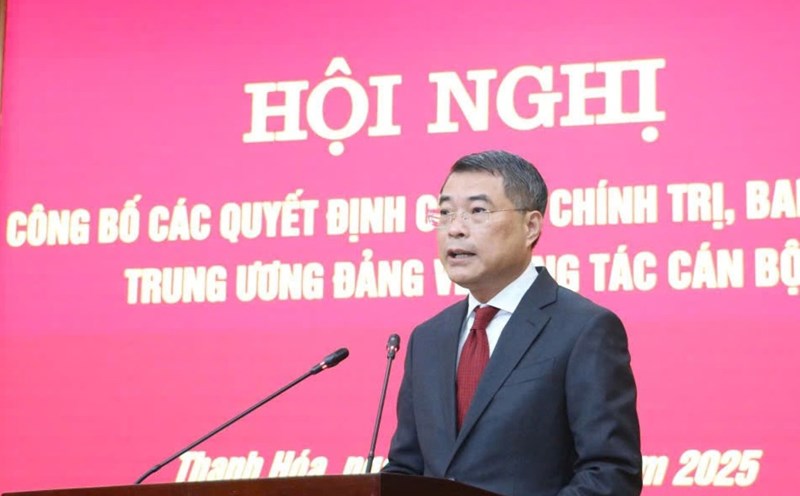This is a recommendation from Associate Professor, Dr. Dang Tran Tho - Giang Vien - Director of the Institute of Energy Technology (Hanoi University of Science and Technology) on solutions to promote energy saving and efficiency in the interview with Lao Dong.
Sir, in the context of Vietnam accelerating the implementation of Net Zero commitments and green trade integration, the completion of the energy saving policy (EAP) is considered urgent. So what is the number one priority in the current policy?
- In my opinion, perfecting laws and policies is the key. It is necessary to review, grasp and perfect the legal system on energy efficiency and efficiency, in which priority is given to shifting from the "encouragement" mechanism to a clear "legal obligation" and having effective sanctions. For example, enterprises with an energy consumption level above a certain threshold need to develop a 5-year energy saving plan, which is assessed and agreed upon periodically. The Government issued a national energy intensity target framework (TOE/GDP) and assigned specific targets to each industry and locality, in order to link implementation responsibility with energy efficiency.
In addition, it is necessary to add regulations on integrating energy efficiency criteria into investment and construction licensing, and contractor selection in public projects, industrial parks and commercial buildings. This is a synchronous approach to make energy saving an indispensable part of the sustainable socio-economic development strategy.
In addition to perfecting the law, in your opinion, what is an important tool to ensure that businesses strictly implement energy saving and efficiency?
- In the context of increasingly deep Net Zero commitment and green trade unions, it is necessary to apply mandatory sanctions to ensure the implementation and responsibility of businesses in energy use. First of all, it is necessary to clearly define the subjects that require annual energy audits, not only limited to large enterprises, but also extending to establishments with high consumption in key industries such as cement, steel, garment, logistics, etc.
In addition to auditing, it is necessary to require businesses to develop periodic energy saving policies, commit to the consumption reduction rate/year and publicly publish progress reports - similar to the model of carbon emission declaration in international ESG indices. This is not only a basis for supervision but also a tool to enhance the image and credit rating of enterprises.
Violating accountants need to have enough deterrence: Administrative sanctions, suspension of incentives, not allowing the receipt of green loans or participating in public projects if they do not fulfill their commitments. At the same time, it is necessary to issue a mechanism to reward and rank advanced enterprises in terms of energy efficiency, creating competitive pressure and driving force for innovation in the entire industry.
A major obstacle in implementing energy saving is investment capital, so what is the solution to remove it, sir?
- One of the biggest barriers to implementing energy saving in Vietnam today is the limitation of initial investment capital and technical capacity of consumption facilities. To overcome this challenge, it is necessary to strongly promote the ESCO (Energy Service Company) model - an enterprise providing energy-saving services under the form of effective contracts.
In Vietnam, it is necessary to issue a separate legal framework for ESCO, clearly defining technical standards, methods for determining the level of dividends and how to share benefits. In parallel, the Government should support through credit guarantee mechanisms, risk insurance funds and corporate income tax exemptions during the refinancing period.
In addition, ESCO should be encouraged to cooperate with industrial parks, export processing zones, building clusters, etc. to build "community cooperation" models, reduce management costs, scale-up and quickly spread energy-saving solutions.
Do you have any further proposals on financial support mechanisms to encourage businesses to invest more in energy saving?
- Investing in energy saving often brings long-term results, but the major barriers are high initial costs and a relatively long payback period, especially for small and medium-sized enterprises. Therefore, designing supporting financial policies is a key factor in promoting implementation.
It is necessary to build a special preferential credit mechanism for energy-saving projects, with interest rates 23% lower than the market, long-term loans and flexible repayment methods based on the achieved rate. At the same time, it is possible to apply a results-based financing mechanism (results-based financing), in which the budget or international financial institutions only disburse when the project achieves a verified energy savings level.
Regarding taxes, it is necessary to expand incentives for corporate income tax, import-export tax and quick deduction for equipment, software, and technology to serve energy saving. In addition, it is advisable to build a "green brand" system for businesses with good achievements in energy saving - as a condition for receiving public support programs, project bidding or green credit from banks.
Many opinions say that social awareness and community are the key to success, how do you evaluate this opinion?
- An important but often overlooked factor in promoting energy saving is changing consumer behavior and raising social awareness. In many developed countries, the effectiveness of mass communication campaigns, education in schools and vocational training has contributed significantly to the success of the energy saving program.
In Vietnam, it is necessary to promote the national communication strategy on energy saving associated with the motto: "Stidy is patriotic - stidy for development". In addition, it is necessary to build a network of energy-saving technical consultants, with support centers in provinces, industrial parks, and production clusters. These units will provide free consultation, quick surveys and propose appropriate payment solutions for small businesses - which do not have a team of specialized specialists.
The integration of energy saving into vocational training programs and technical universities also needs to be promoted to create a qualified force of engineers - energy experts, meeting the requirements of green transformation of the economy.
Thank you!










